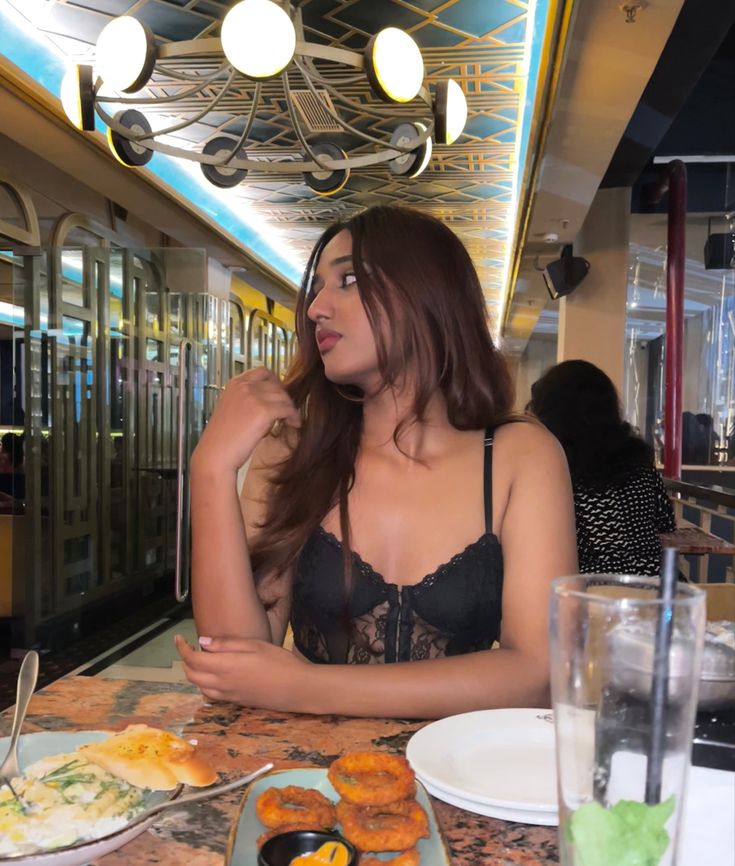The Night Market Confession 2 : How a Stranger's Secret in Marrakech Changed My Life Path
The Night Market Confession: How a Stranger's Secret in Marrakech Changed My Life Path
When Morocco Wasn't on My Itinerary
After spending nearly two years exploring Southeast Asia, I had planned to return home, my wanderlust temporarily satisfied. Yet standing at the airport departure gate, ticket home in hand, I felt that familiar restlessness creeping back. On impulse, I approached the airline counter and asked about changing my destination. Twenty-four hours and a significant change fee later, I landed in Casablanca with no plan, no contacts, and only the most rudimentary understanding of Morocco from an outdated guidebook purchased at the airport.
"You're either incredibly brave or completely insane," I texted my sister, echoing her words from when I first left New York. Her response came quickly: "At this point, I'm going with brave. But please tell me you at least booked a hotel?"
I hadn't, of course. But travel had taught me that the most transformative experiences rarely come from carefully crafted itineraries.
The Rhythm of Marrakech
Marrakech hit all my senses at once – the pungent blend of spices, leather, and humanity in the medina; the cacophony of vendors calling out their wares in Arabic and broken English; the kaleidoscope of colors from textiles and tagine pottery; the press of bodies navigating narrow alleyways. After the spiritual tranquility of Southeast Asian temples, Morocco's sensory overload was both jarring and exhilarating.
I found myself a small riad on the edge of the medina, run by a formidable woman named Fatima who sized me up with one glance and declared, "Another woman running from something. Marrakech is good for that. We have been hiding women's secrets for centuries."
When I protested that I wasn't running from anything, just exploring, she laughed. "Exploring is just running without knowing what you're looking for. You'll find it here anyway."
Fatima's words would prove more prophetic than I could have imagined.
The Artisan in the Night Market
My third evening in Marrakech, I wandered into the night market at Jemaa el-Fnaa square. Beyond the tourist-oriented stalls selling knock-off designer goods and mass-produced "authentic" souvenirs, I discovered a small alley where actual artisans worked. One stall particularly caught my eye – a woman perhaps in her fifties creating intricate leather goods with techniques I hadn't seen elsewhere.
Unlike other vendors who aggressively courted tourists, she seemed content to work in relative obscurity. When I stopped to admire a particularly beautiful bag, she looked up with surprise.
"American?" she asked in accented English.
When I nodded, she smiled slightly. "Most Americans don't find this alley. They stay where the tour guides send them."
Something about her quiet confidence intrigued me. "I'm not most Americans," I replied, settling onto a small stool near her workstation.
Her name was Nadia, and over mint tea so sweet it made my teeth ache, we began a conversation that would stretch late into the night. She asked thoughtful questions about my travels, nodding appreciatively at my stories of village homestays and attempts to understand local cultures beyond tourist attractions.
"You listen," she observed. "Most travelers only look."
As the market began to close around us, Nadia invited me to continue our conversation at a small café known mostly to locals. Perhaps it was my two years of travel intuition, or simply her calm, intelligent demeanor, but I felt safe accepting the invitation – a decision that would alter the course of my life.
A Secret Revealed
The café was tucked into a courtyard, hidden behind an unmarked door that I would never have found on my own. A few men played cards in one corner, and two women in hijabs chatted quietly in another, but otherwise the space was relatively empty. We claimed a corner table, ordered more mint tea, and continued our conversation.
As midnight approached and our trust deepened, Nadia's demeanor subtly shifted. She glanced around the nearly empty café and leaned forward.
"I have been watching you these past hours, trying to decide if you are someone who can be trusted with a truth," she said, her voice dropping. "I think you are."
What followed was a confession that I still struggle to process fully. Twenty years earlier, Nadia had been married to a prominent businessman who subjected her to brutal abuse behind closed doors. In a culture where domestic violence complaints were often dismissed and women pressured to maintain family honor regardless of personal cost, she had few options.
"One night, he came home drunk and began to beat me as usual," she explained, her fingers nervously tracing patterns on the tablecloth. "But this time, I knew he wouldn't stop. I could see it in his eyes."
In desperation, she had fought back – and her abuser had died in the struggle. With the help of a network of women, she had disappeared that night, assumed a new identity, and had been living as Nadia the artisan ever since.
"The police investigation concluded he was killed by thieves," she said. "His family received their justice through that story. And I received mine through truth."
I sat frozen, tea cooling untouched before me, as the implications of her confession sank in. She had just admitted to killing a man – self-defense, certainly, but a death she had concealed for decades.
"Why tell me this?" I finally managed to ask.
Her answer was simple: "Because you write stories, and some stories need witnesses, even if they're never published."
The Moral Crossroads
I barely slept that night, my mind racing with conflicting thoughts. As a journalist at heart, I had stumbled onto an explosive story – a confession of manslaughter or justifiable homicide, depending on one's perspective, and a potential cover-up involving multiple women.
Part of me recognized the professional opportunity. This could be the article that launched a serious writing career beyond travel blogging. I even drafted opening paragraphs in my head, changing names and details to protect identities while preserving the powerful narrative.
But another part of me understood that Nadia's trust wasn't given for my professional advancement. She had recognized in me a fellow woman who might understand impossible choices and the messy reality of justice in a world not designed to protect women.
By morning, I had made my decision. This was not my story to tell – at least not in any identifiable way. Whatever legal or ethical complexities surrounded Nadia's actions, I couldn't appoint myself judge and jury through my writing.
I returned to the night market the following evening, finding Nadia at her stall. When our eyes met, her expression was guarded, perhaps already regretting her confidence.
"Your secret remains yours," I said simply. "But I have questions about the women who helped you, if you're willing to introduce me."
The relief in her eyes was palpable. "Why?"
"Because I think that's the story that matters – not one woman's desperate act, but the network that protected her afterward. The sisterhood that recognized justice when the system failed."
The Underground Network
Over the next three weeks, Nadia cautiously introduced me to several women from what I came to think of as Marrakech's underground railroad for women in crisis. I met Yasmine, a doctor who treated injuries without documentation; Samira, who ran a small shop that sometimes transformed into temporary shelter; and Laila, whose connections helped create new identities for women who needed to disappear.
None shared specific details of cases they had handled – just the broader structure of their informal network and their motivations for risking legal consequences to help fellow women.
"The law is written by men, enforced by men, and interpreted by men," Laila told me over coffee in her modest apartment. "Until that changes, women must create their own justice system in the shadows."
What struck me most was how ordinary these revolutionary women appeared. They weren't political activists or radical feminists by any Western definition. Most were religious, traditionally minded in many ways, and deeply embedded in their communities. They had simply recognized a gap between justice and law, and stepped in to bridge it as best they could.
With their permission, I began documenting their network – changing names, locations, and identifying details while preserving the essence of their operation. The resulting article, published months later in an international women's magazine, focused entirely on the support system rather than any specific cases it had handled.
The Choice That Wasn't on Any Map
As my time in Morocco drew to a close, I faced a crossroads no travel guide could navigate. The editor who published my piece about Marrakech's women's network had offered me a job as a features writer focusing on women's issues globally. It was the kind of opportunity I'd dreamed of before abandoning my corporate life.
But I had also received an encrypted email from Laila: "Networks like ours exist in many countries. They need witnesses who understand when to speak and when to remain silent. If that interests you, we have connections."
It wasn't just a job offer – it was an invitation into a shadow world of women's resistance and survival that few outsiders ever glimpsed. Not as a journalist, but as a participant.
The ethical complexities made my head spin. Would I be enabling extrajudicial actions? Or supporting necessary intervention where legal systems failed? Was I abandoning journalistic objectivity, or recognizing that neutrality sometimes functioned as complicity with oppressive systems?
On my last night in Marrakech, I returned to Fatima's riad, where my Moroccan journey had begun.
"You found what you were looking for?" she asked, serving tea on the rooftop terrace as the call to prayer echoed across the medina.
"I found something I wasn't looking for," I admitted.
She nodded sagely. "Those are the only discoveries that matter. The rest is just collecting souvenirs."
I left Morocco the next day having made my decision – one that would lead me into experiences both profoundly challenging and deeply meaningful. But that's a story for another time.
What I can share is this: Sometimes the most important journeys aren't found on any map. Sometimes they begin with the courage to hear uncomfortable truths, to question your own moral certainties, and to recognize that justice and law aren't always the same thing.
As I boarded my flight, I remembered Nadia's words from our first meeting: "Most travelers only look. You listen." In listening, I had found not just a story, but a calling.
Next time: "The Women's Code: Inside the Global Network That Operates Beyond Borders and Laws" – the final installment of Alice's journey as she navigates her new role within an international women's support network and confronts the personal cost of living between worlds.



